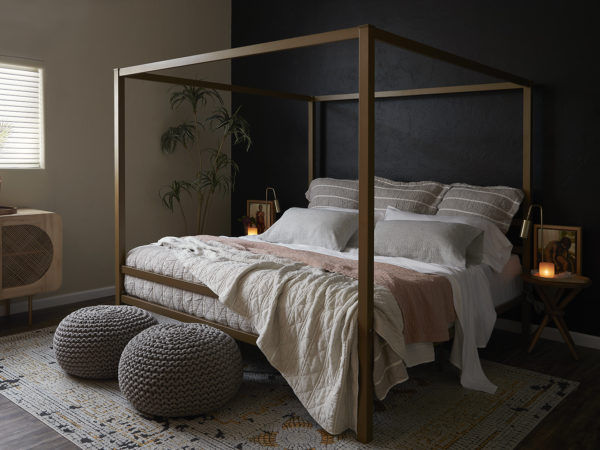5 Tips to Boost Your Sleep Quality

It is during sleep that our bodies restore, rejuvenate, and prepare for the challenges of the coming day. Yet, achieving high-quality sleep can be elusive for many. In this post, we’ll delve into five strategies to enhance your sleep quality.
1. Maintain a Consistent Sleep Schedule
Your body operates on an internal clock, known as the circadian rhythm, that regulates sleep and wakefulness. To support this natural rhythm, strive to go to bed and wake up at the same time every day, even on weekends. While individual sleep needs can vary, the Sleep Foundation recommends seven to nine hours per night for most adults.
2. Cultivate a Sleep-Supportive Environment
Creating an environment conducive to sleep can greatly enhance sleep quality. This includes a quiet, cool, and dark room. Consider using light-blocking curtains or a sleep mask, earplugs, or a white noise machine if needed. Keep electronic devices out of the bedroom to avoid sleep-disrupting blue light exposure. Investing in a good quality mattress, pillows, and bedding can further support physical comfort and proper alignment of your head and spine during sleep.
3. Incorporate Regular Exercise
Physical activity has been shown to improve sleep quality by helping regulate the body’s sleep-wake cycle and reducing symptoms of insomnia. However, timing matters. Engaging in high-intensity exercise too close to bedtime can interfere with sleep onset. To help ensure quality sleep, aim to finish exercising at least a few hours before bedtime.
4. Implement Stress Management Techniques
Stress and sleep are closely intertwined, with chronic stress often leading to sleep disturbances. Consider integrating relaxation practices like deep breathing exercises, yoga, or mindfulness meditation into your daily routine. Activities such as reading, listening to soothing music, or taking a warm bath can also help signal to your body that it’s time to prepare for sleep.
5. Limit Stimulant Intake
Stimulants, including caffeine, nicotine, and alcohol can interfere with sleep. Caffeine can interfere with your body’s internal clock and reduce the total amount of sleep. Nicotine and alcohol, despite misconceptions of being substances of leisure, actually disrupt the quality of sleep. To ensure a proper night’s rest, make conscious efforts to avoid using these substances in the hours leading up to bedtime.
Sources
“Circadian Rhythm and Sleep Disruption: Causes, Metabolic Consequences, and Countermeasures.” NCBI. https://pubmed.ncbi.nlm.nih.gov/27763782/
“How Much Sleep Do You Need?” National Sleep Foundation. sleepfoundation/how-sleep-works/how-much-sleep-do-we-really-need.
“Blue Light Has a Dark Side.” Harvard Health. health.harvard/staying-healthy/blue-light-has-a-dark-side.
“Exercise and Sleep.” Sleep Foundation. sleepfoundation/physical-activity/exercise-and-sleep#:~:text=Specifically%2C%20moderate%20to%20vigorous%20exercise,in%20bed%20during%20the%20night.
“Stress and Sleep Disorder.” NCBI. ncbi.nlm.nih/pmc/articles/PMC3538178/.
“Caffeine and Sleep.” The Sleep Health Foundation. sleephealthfoundation.au/caffeine-and-sleep.html.
“The Effects of Alcohol on Quality of Sleep.” NCBI. ncbi.nlm.nih/pmc/articles/PMC4666864/
Today’s Health Topics










